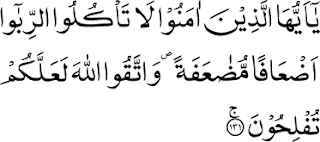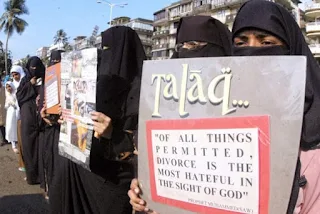Around us,
we always see and observe a sociological reality:
despite apparent claims of faith in hallowed Divinity, and associated
higher values of life; the religious institutions and leaders resemble and
emulate the ways of the prevailing material culture, and its everyday practices. Despite
holding on to the lofty language, and grand symbols of religion (the rites,
rituals, and other practices of offering of prayers and allegiance to forms of
worship), people are emptied of the 'spirit' of Divine consciousness in their
every day lives. While religions are 'captured' by priestly
class, and by the social and political elites in all societies, 'Islam' in our times is not impervious to this wider decay in social culture. Indeed, Islam, as a social identity, has been co-opted to promote the agendas of the prevailing, deviant elites so as to subserve their material/mundane interests.
In his Friday Sermon of 31 December
2021~26 Jamadi’ul Awwal 1443 AH, Imam- Jamaat Ul Sahih Al Islam Hazrat
Khalifatullah Munir A. Azim (aba) of Mauritius makes profound reflections on
the dire state of spirituality today: the glaring crisis of spirit that engulfs
the world of Religion in our times. Divinely-mandated and raised with the
charge of reviving and renewing the spirit of true Faith in this era as a
spiritual Deputy of the Holy Prophet (sa), and also a Trustee of God on earth
(Khalifatullah), Hazrat Khalifatullah (aba) points to the the ways in which
utter darkness looms over the world of spirituality: "Nothing of Islam
Except Its Name, Nothing of the Qur'an Except Its Text"- where the spirit
of Imaan has virtually 'left' earthly people to the distant stars, to the
Pleaides as it were.
Hazrat Saheb (aba) underscores the need for
true believers to hold on to the true legacy of the Holy Prophet of Islam
(sa). Indeed, Islam is a comprehensive code of conduct- as exemplified by the Holy Prophet (sa) through his Sunnah, with its principles and
prescriptions covering the whole spectrum of human life. In responding to
challenges of social conditions, the Muslims should not be overawed by the apparently alluring, but deviant ways of the
Others. Rather we need to revive and renew the true teachings of the Faith, and
follow the noble example of our pious ancestors in evolving solutions. Instead
of living under the physical and ideological dominance of other religions and
other collective groups, Muslims can truly liberate themselves from the
clutches of false ideologies only through a true commitment to
Allah's commandments and restrictions on what is lawful and what is Haraam,
relying entirely on Allah in the shaping of fortunes in the creation of a
just society- standing up for individual and collective good, and rejecting all
Evil, notes Hazrat Saheb (aba) in this Discourse.
Read the Friday Sermon Below:
 The Messenger believes in what has been revealed to him from his Lord, and so do the believers. They believe in Allah, His angels, His Books, and His messengers. (They proclaim) “We make no distinction between any of His messengers.” And they say, “We hear and obey. (We seek) Your forgiveness, our Lord! And to You (alone) is the final return.” (Al-Baqara 2: 286)
The Messenger believes in what has been revealed to him from his Lord, and so do the believers. They believe in Allah, His angels, His Books, and His messengers. (They proclaim) “We make no distinction between any of His messengers.” And they say, “We hear and obey. (We seek) Your forgiveness, our Lord! And to You (alone) is the final return.” (Al-Baqara 2: 286)








